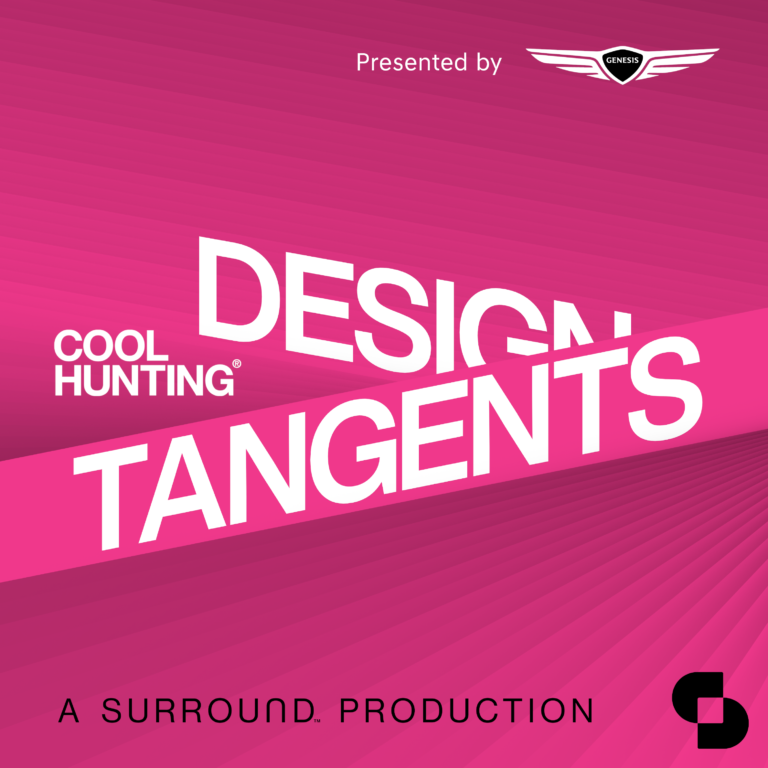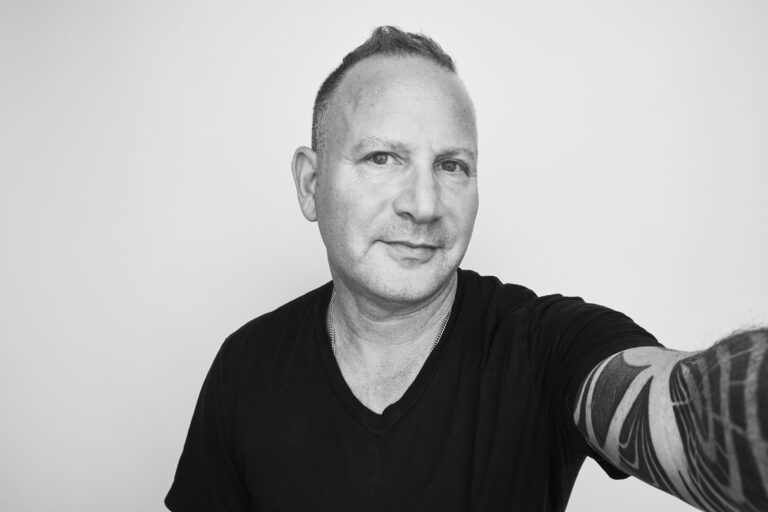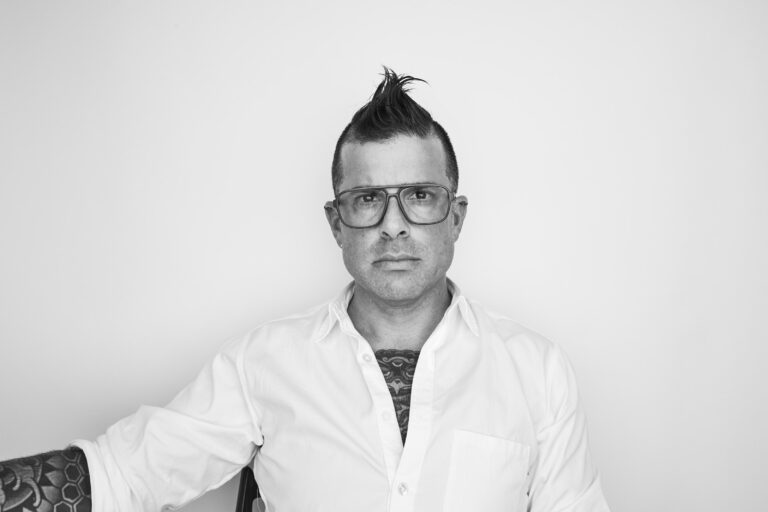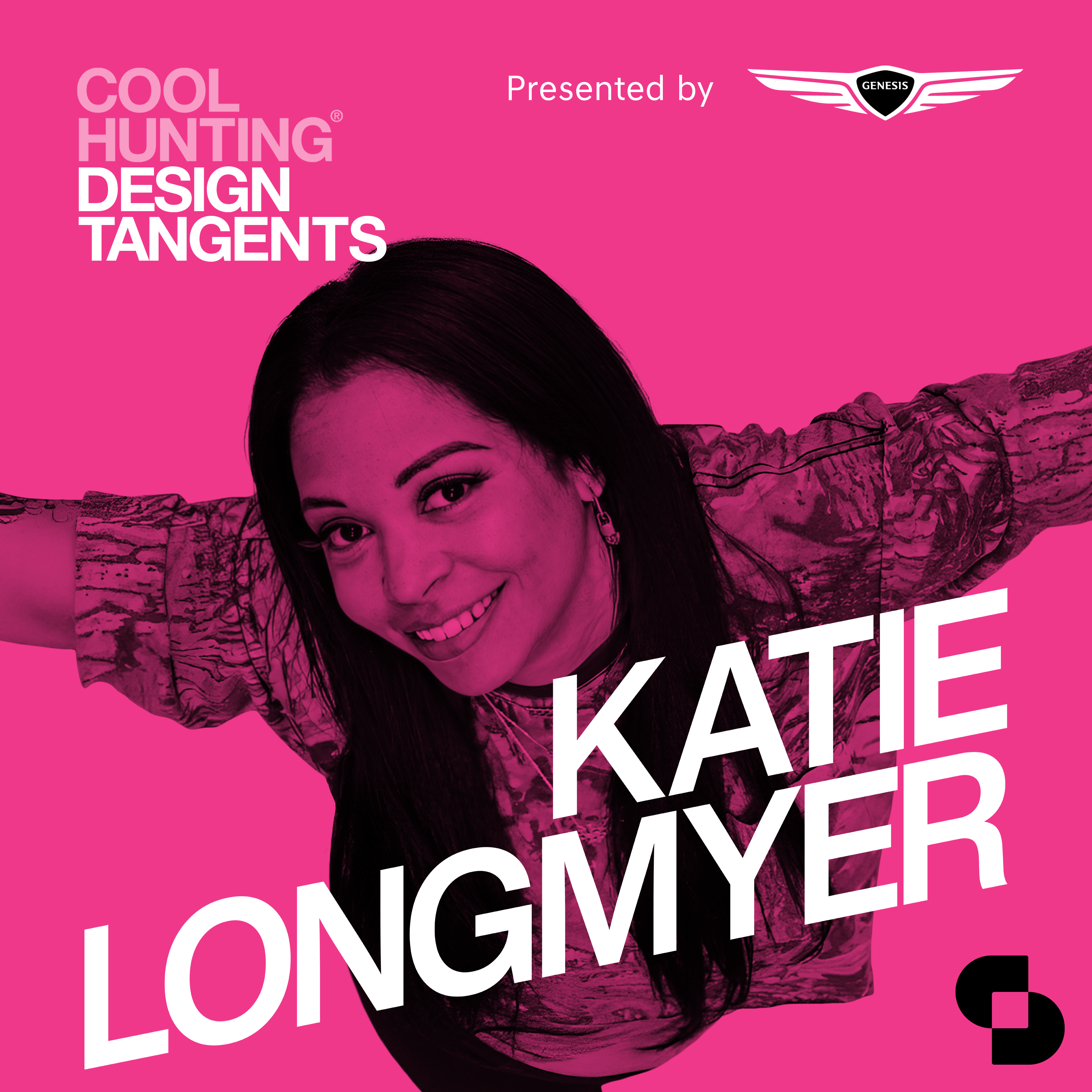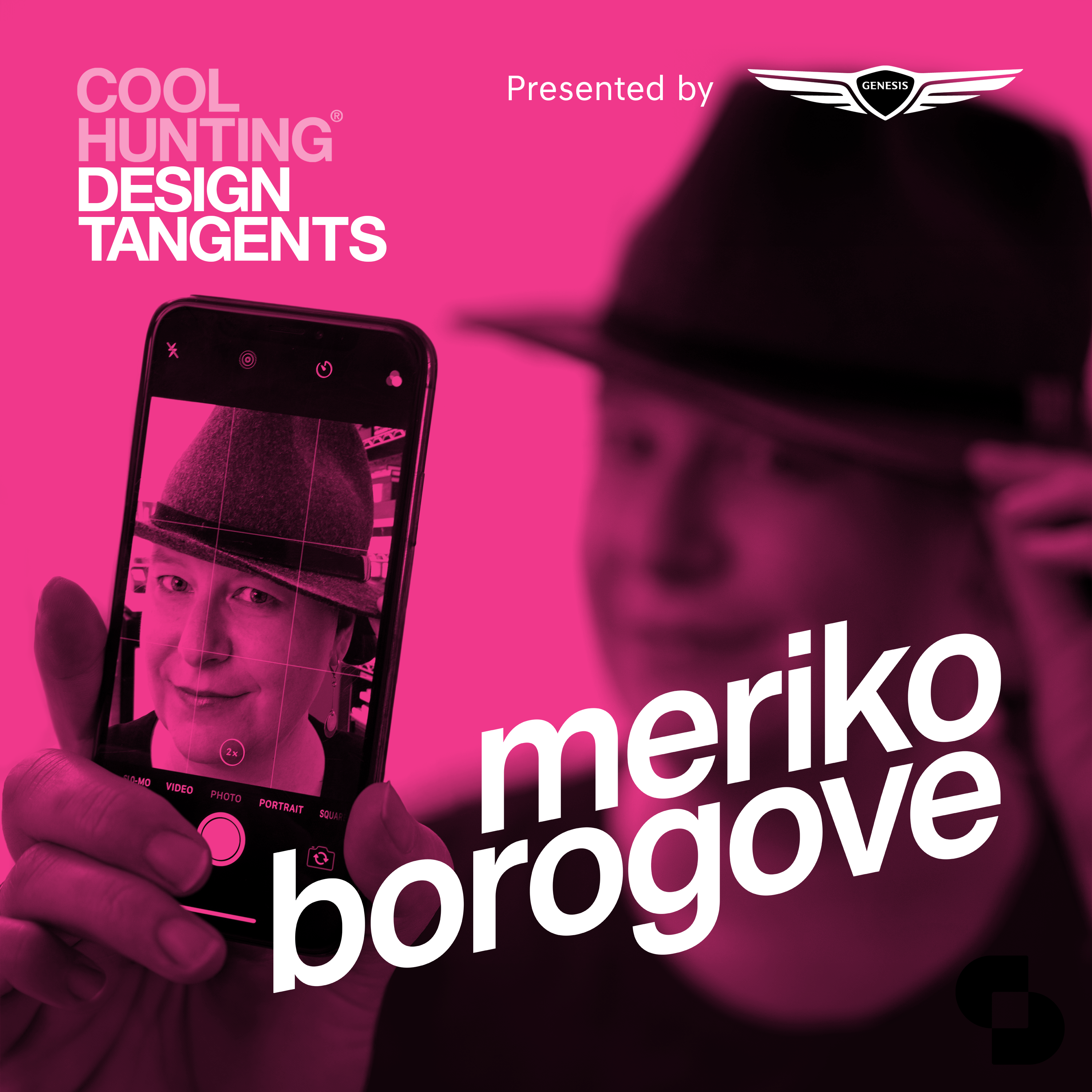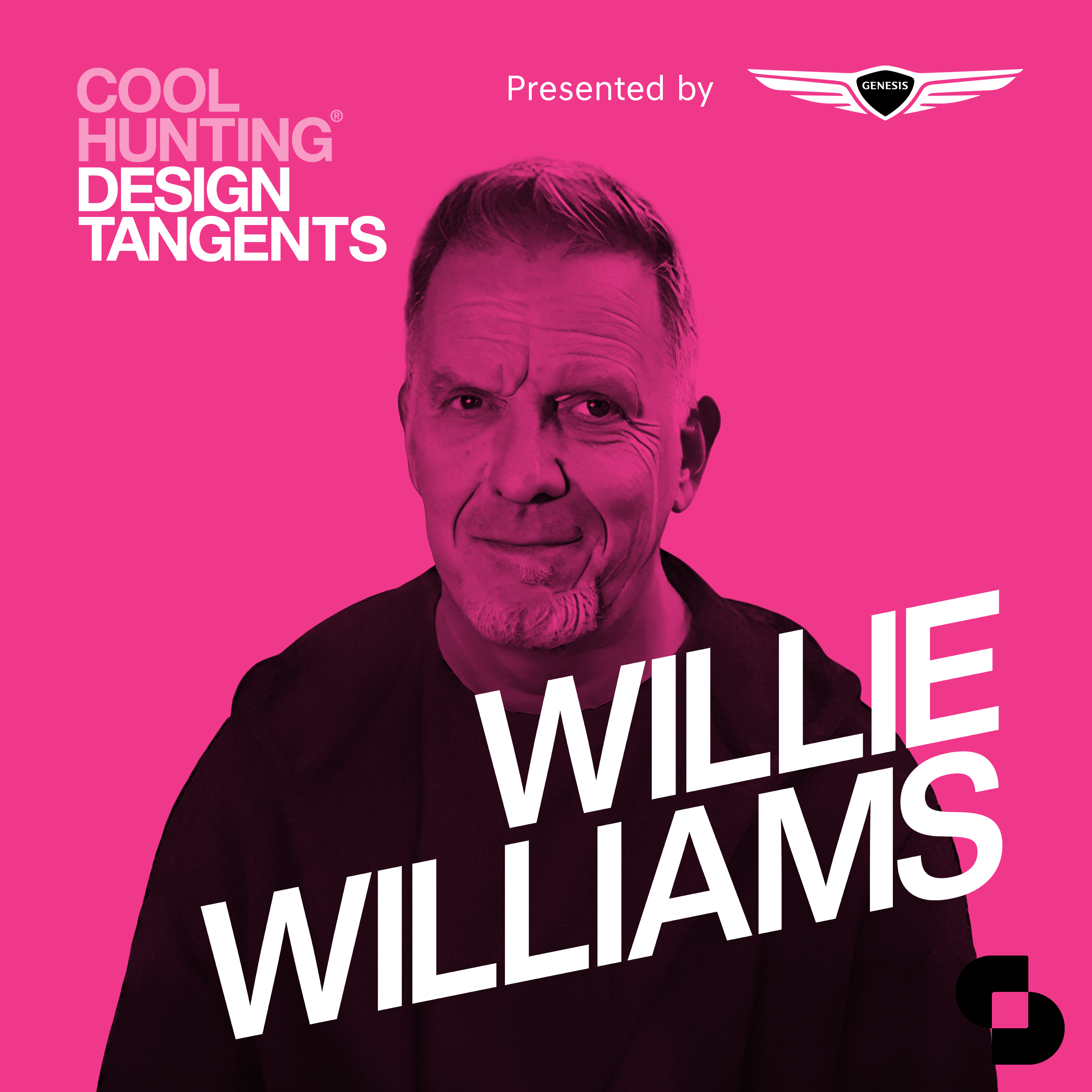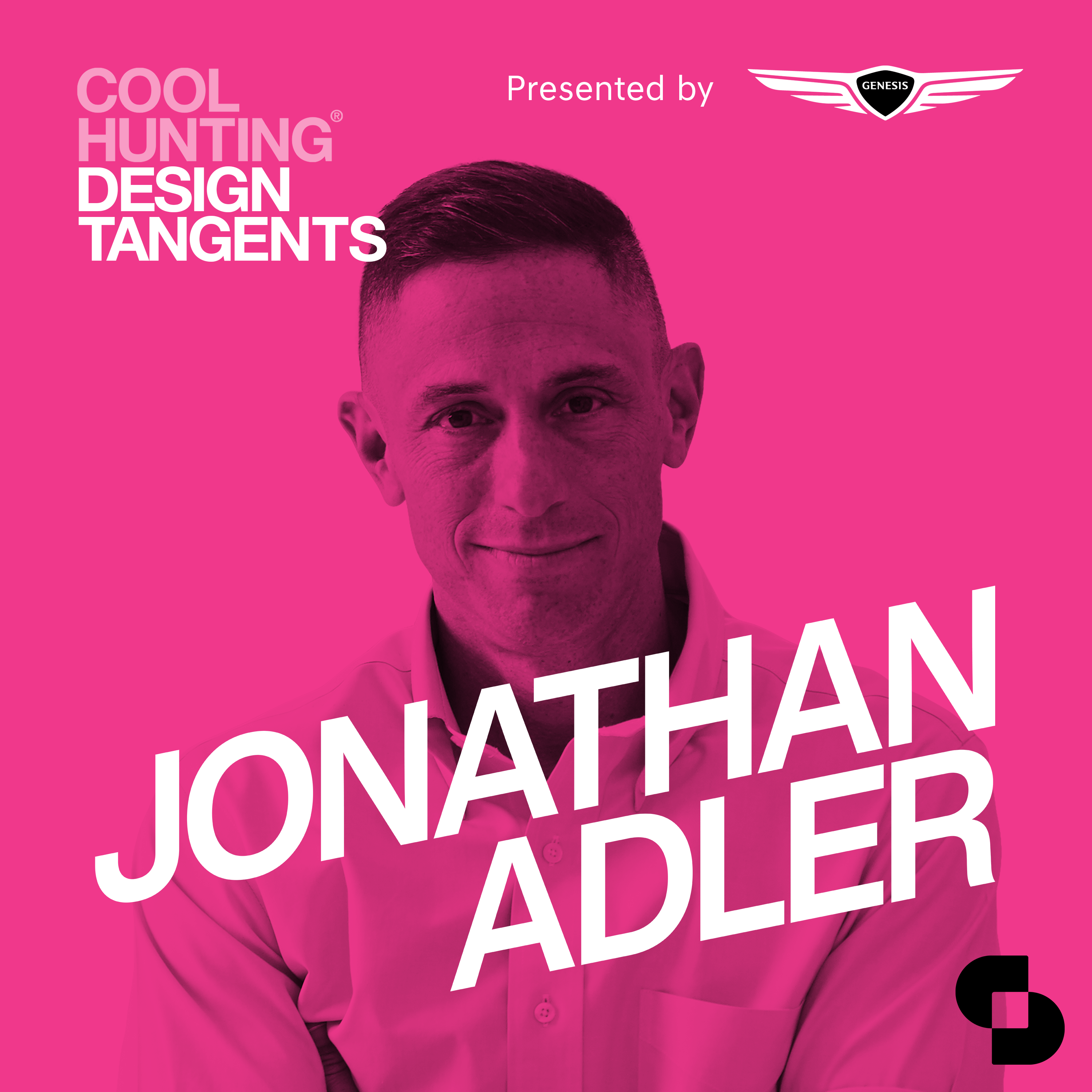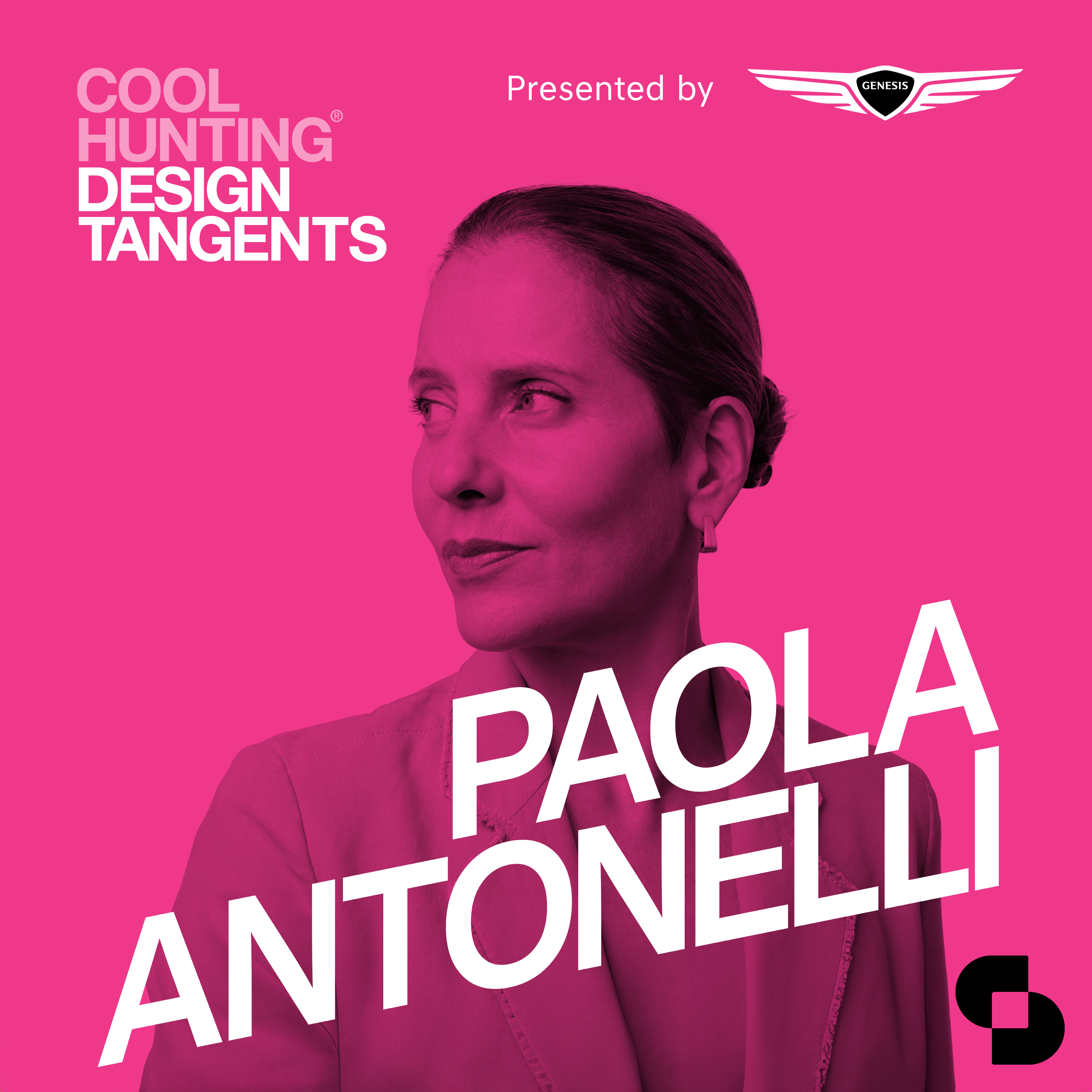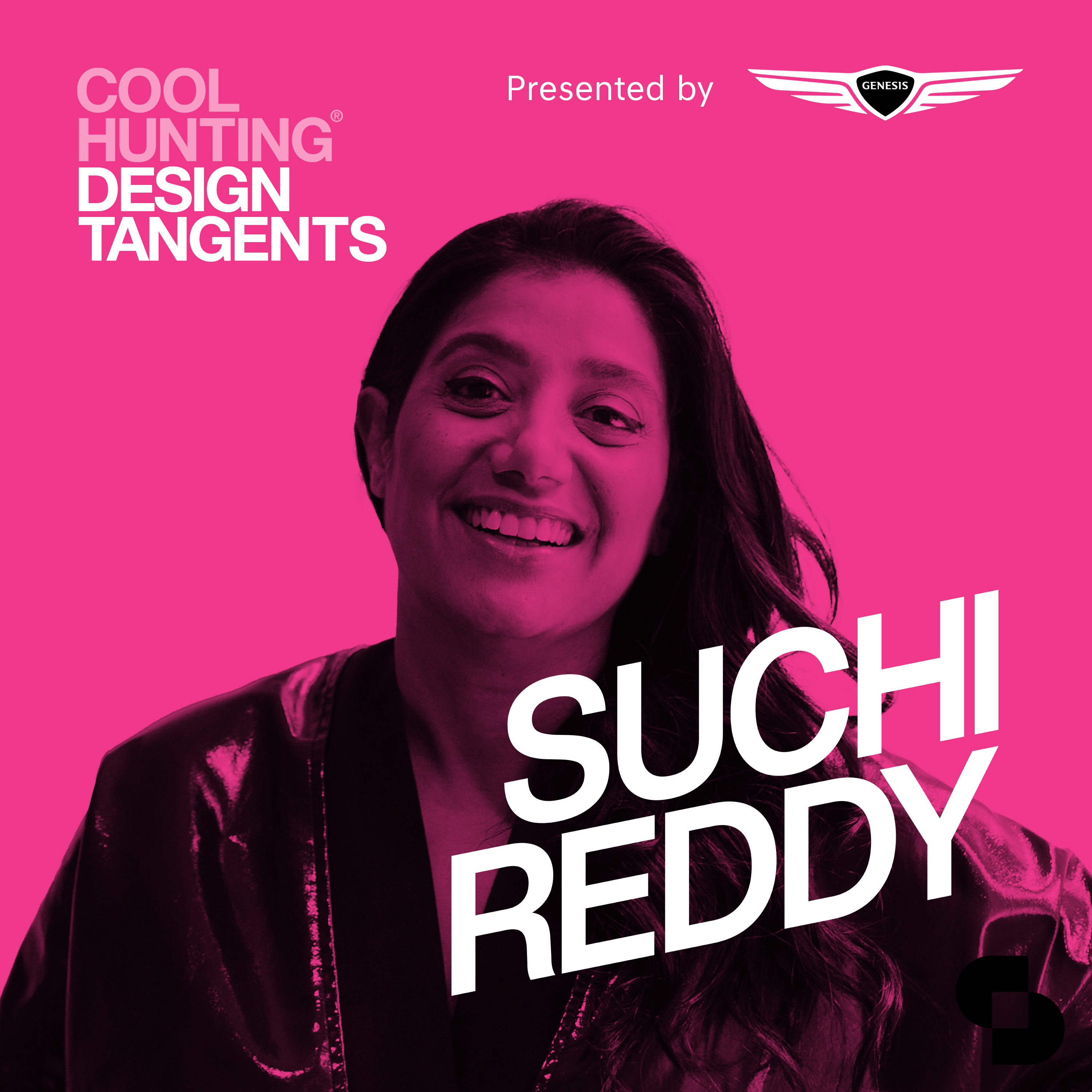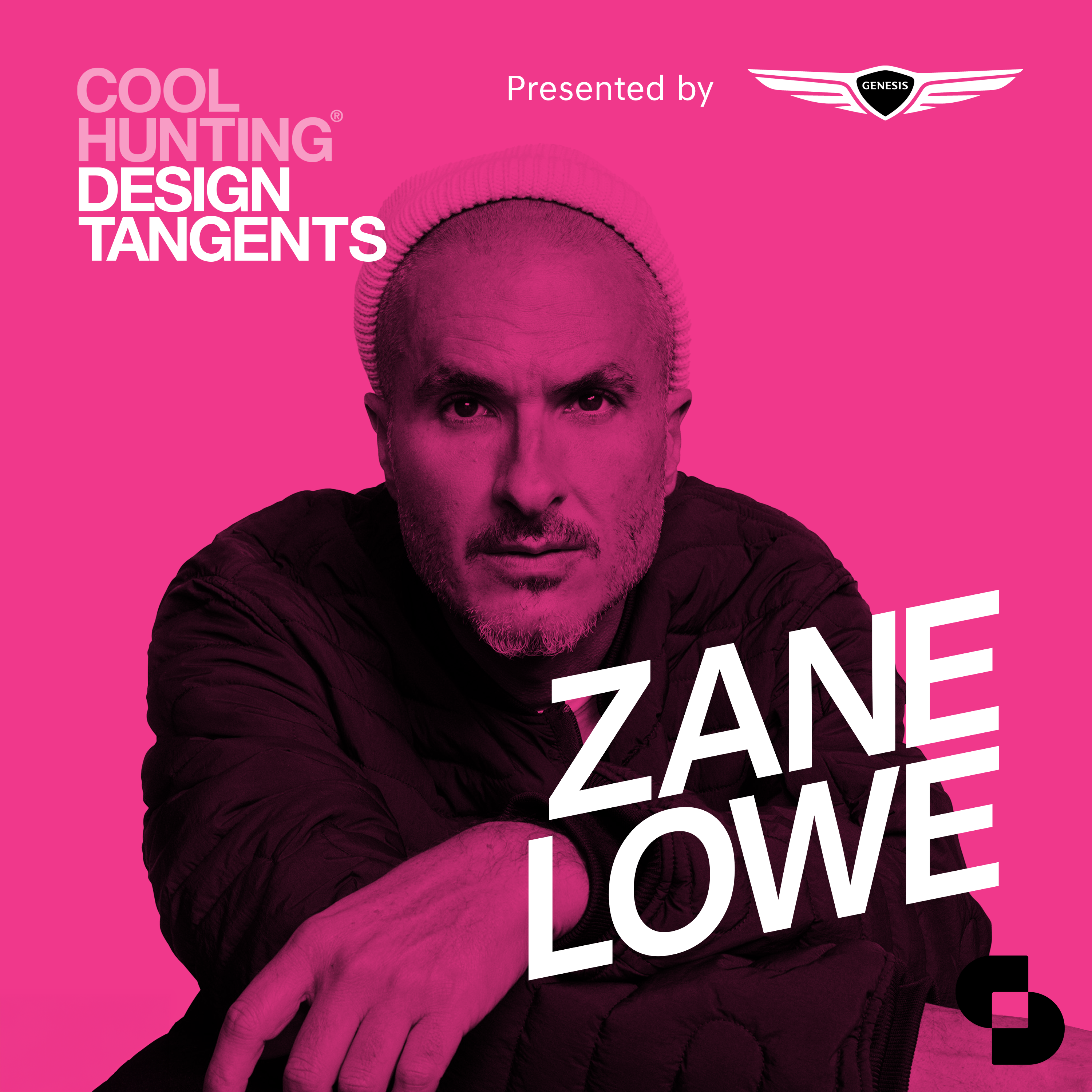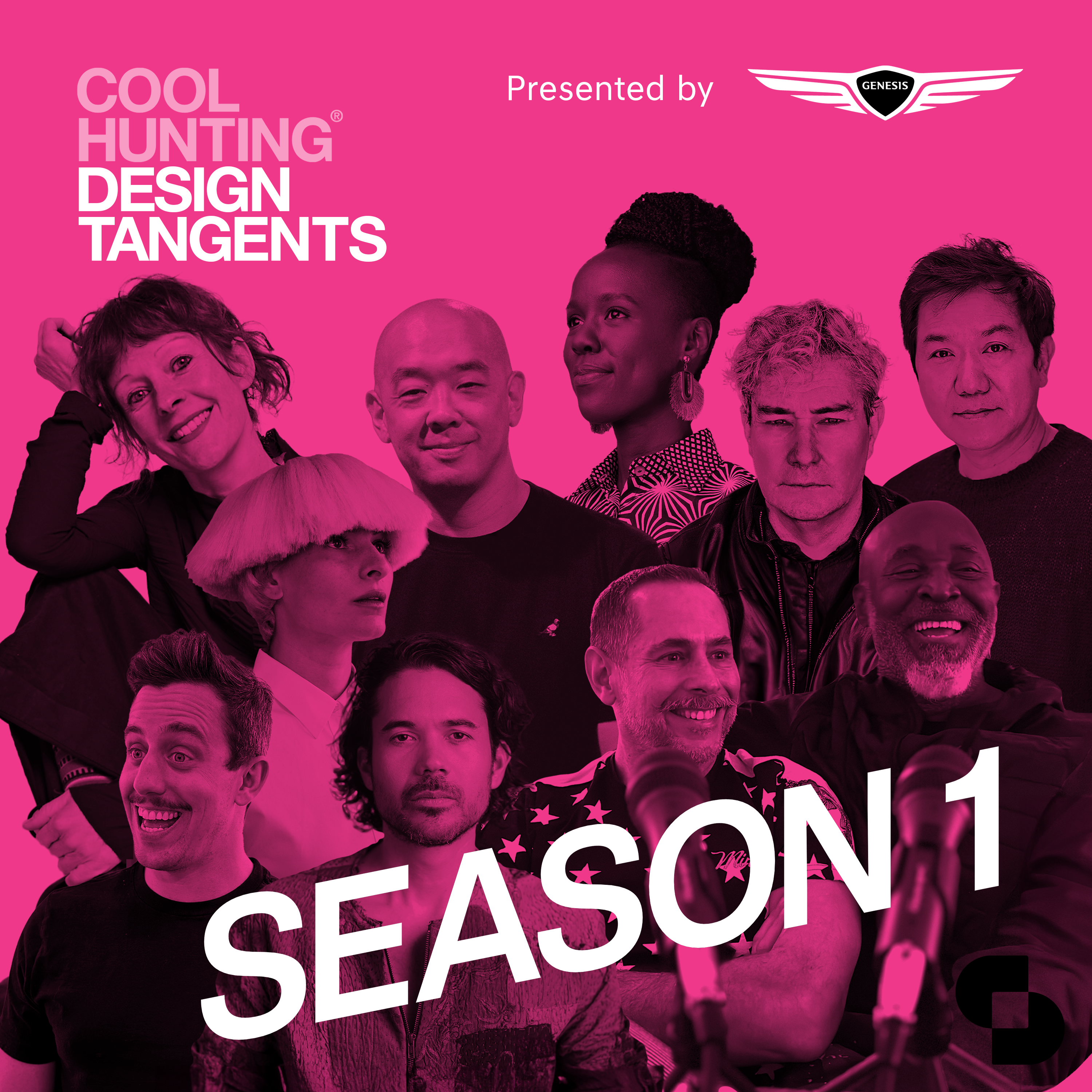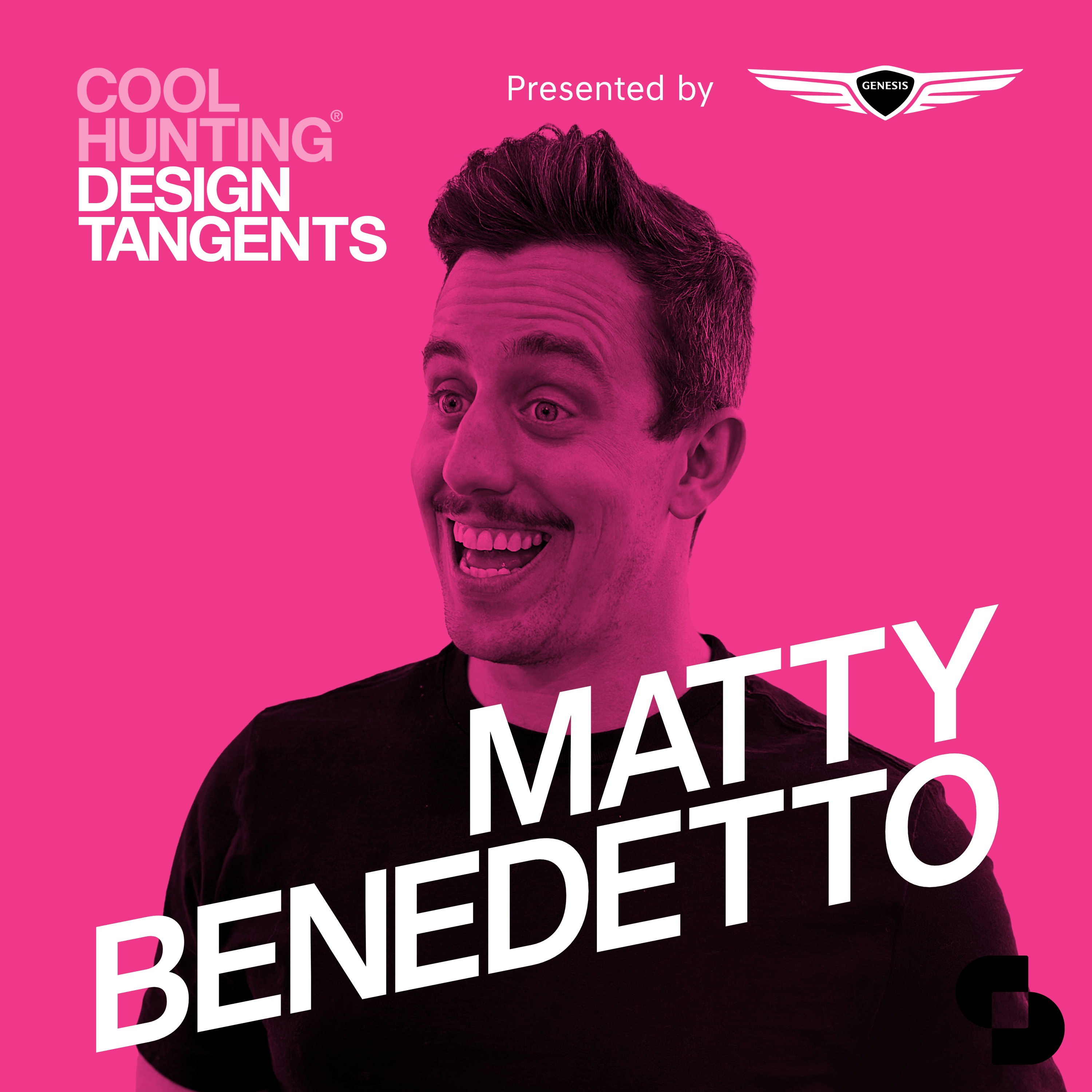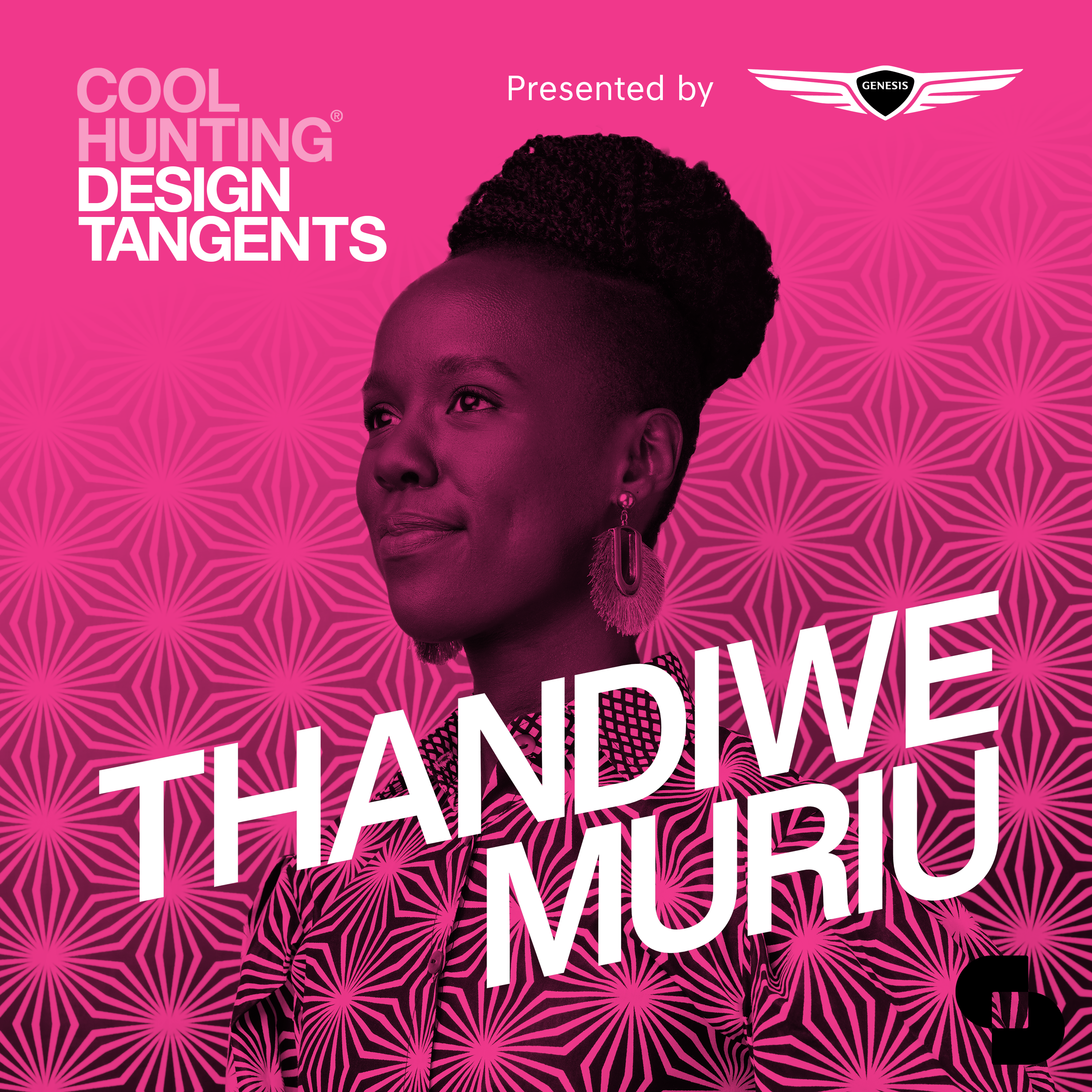This transcript was generated by an automated service. In some cases it may be incomplete or inaccurate due to inaudible passages or transcription errors.
Maximilian: [00:00:00] Stop creating to please people try and create for yourself, and that is not something you’re brought up on. I wanna create something I love.
Josh: Welcome to Design Tangerines, a podcast from Cool Hunting, exploring the creative processes and inspirations that drive change makers. I’m Josh Rubin.
Evan: I’m Evan Orensten.
Josh: Evan, I’ll never forget the first time I went to your apartment back in 19 ninety-nine, and saw that you had an Aurora clock. By that time, I had already suspected that we’re destined to be together forever and ever.
But seeing that clock helped me understand just a little bit about how having things in common really matters. My grandparents had one and I’d always lose myself staring into it, watching the hands rotate and watching the colors change.
Evan: It’s funny ’cause when you recognize the Aurora clock, and we talked about both of us growing up with one, it was just another part of our journey that really clicked.
And for those of you who have no idea what we’re talking about, the Aurora clock had a moment in the 1970s, particularly in. What I like to say, Jewish contemporary homes, it has a round cylinder. And a round base. So it’s kind of like a T-shaped object, and it’s made outta polished aluminum. It has clear lucite hands and a pair of clear polarized disks that rotate.
And as the light passes through from behind the disks display, this constantly changing prism of color. It’s really like an orological lava lamp.
Josh: I think it’s three disks, not two disks, right? Because there’s one for the hour, one for the minute, one for the second. That’s part of what makes the colors so amazing anyway, correcting Evan as I as usual to do.
Yeah, as usual. The draw for me is partially that hypnotic effect and partially that it was something new and different. [00:02:00] I. That still provided a basic underlying utility of timekeeping. We still have your family’s original one, and we also have one of the limited edition auroras in our living room that we made a few years back as part of our Omakase retail program.
I. For that one, we removed the aluminum case and had it anodized black. The way the color reflects on the interior rim, it just has this beautiful oil slick kind of effect that was unanticipated and. Makes it even more delightful.
Evan: The Aurora clock has had a really great journey and, uh, it was eventually bought by someone and they currently make them still.
Uh, and you can even get them at the MoMA store now. So as, as part of our show notes, we’ll include the link to that. Um, and as well as our limited edition that we made, which I’m thinking we might need to bring back Josh. More than 10 people in the world need to have one.
Josh: Yeah. But we need to do something a little bit different with it.
’cause those 10 people need to have 10 special things and maybe they also will want to have this next
Evan: edition too. Challenge accepted. I. I started collecting vintage watches, mostly those with LED and LCD movements in them. These were things that I fantasized about as a kid and we’re starting to see more and more of them coming back in, in a certain way.
But there was this time when they were just like lost in the, in the watch collector space and, and they were not popular and many of them were thrown out as they broke down because mechanically they were never very good or very stable, and people, I think eventually just moved on to collecting other kinds of watches.
These LED
Josh: and LCD watches are still super rad, but tech ages quickly. I think about that a lot these days in the car world, when today’s best designs are looked back on as classics, how will their screens, their software, their processors be maintained in the future? Can we still have vintage cars if cars are super high tech?
Anyway, that’s a, that’s a tangent for another day. Evan, why don’t you tell us and our listeners about. Today’s guest, we’re
Evan: talking with Max Büsser [00:04:00] and we’ve known Max for, I wanna say 15, 16 years. He’s been covered in cool hunting so many times. There’s also a really great video that we did with him back in 2014 that I think is still very, very relevant today.
I encourage you all to have a, have a watch of that. We’ll put the link up in the show notes. Max’s is is to me, the undisputed renegade of the watch world and he makes timepieces that are stunning. Curious. Simultaneously futuristic, but also retro. He, he goes back to his childhood to find these sparks of inspiration that he had as a kid of, of, of wonder, and he’s taken those into the workshop and, and created incredible objects of mechanical.
Art that are really, really inspiring. As Max likes to say, no one needs a watch to tell the time, so why not go all in on creating a mechanical piece of art?
Josh: Welcome to Design Tangents Max. Evan and I are home here in Beacon. And you moved from Geneva several years ago to Dubai, though MB&F is still based in Geneva. Where are you joining us from today?
Maximilian: So I’m here in Geneva. I’m back in the workshops for the two months of summer every year of being nine years now living in Dubai.
My second daughter was born there and uh, so my schedule is five days in Geneva and July and August full. So we’re coming at the end of August and I’m still here in Geneva.
Evan: Seems like a good move to make Wife. It’s summer in Dubai.
Maximilian: Definitely is. There’s one moment you don’t wanna be in. Dubai is now
Evan: Max.
We’ve known you for a really long time and you’ve always been an inspiration to us for, for a couple reasons. One, just as a creator, you do really great things. You’re such an inspirational entrepreneur, [00:06:00] but I think know you or. With the Swiss watch industry, which is a very traditionally driven and motivated industry, it’s extremely conservative.
It’s compared to many other industries, very slow moving. Um, it’s very difficult to even get a custom watch in some sort.
In that world, which is so outside the orbit of pretty much everyone else in every other company, and we’ve always found that to be incredibly attractive to us, um, at what we do and what we talk about at Hunting. Can you talk a little bit about your transition from working for those more traditional brands and having this burning desire?
Do something that was not only for yourself and your friends, but to push a system that was so against change. Yeah,
Maximilian: it’s, it’s not a natural in Switzerland and definitely not in the watch industry. Mb&f is a life decision. It’s not business decision and I think that’s really.
I, uh, I, I used to dream of being a car designer when I was kid, and I did engineering and I was incredibly lucky that my first job in in life was, uh, working in a little watch brand, which was little in, called Jaeger LeCoultre. Now it’s a very big watch brand and, uh, we were all, the whole industry was virtually bankrupt and we were all grappling trying to survive in a world which didn’t want mechanical watches anymore.
So.
Watchmaking saved me, gave me a family, gave me a life, gave me a purpose, and I fell crazily in love with it. And I was incredibly lucky to work in this company, [00:08:00] which then grew. And then seven years later, I was, uh, very lucky to be given, uh, the head of Harry Winston timepieces. We’re talking of 19 ninety-eight a.
I was a young 31 year
yourself and I had to save that company, which also teaches you a lot about yourself. And then we, it opus, I had a lot of success, uh, in my Harry Winston days during the the two five, and I had what most people all want, which is money recognition, power. And the bigger the company was growing, the less I was enjoying myself.
And not only did I not understand it, I felt guilty because when you come from a middle-class family like me and you end up in such a prestigious job making so much money, I mean, what sort of a ungrateful bastard are you to not enjoy?
Me not paying attention to that and then getting bitten a few a year later, realizing that a lot of things had not been said and going into therapy and doing that therapy, which by the way, us Europeans not a normal thing to
Evan: do therapy or to talk about it
Maximilian: even less, even less.
Trying not to have regrets. And I’ve got lot, I’ve got really serious regrets about my dad and I, and all the things didn’t say to each other. And, um, so since then I, I, I turn my life in a very different direction, thinking the most important is that the last day of my life. I’m proud whenever it is, if it’s in 20 minutes.
I hope in the middle of this podcast, it’s in [00:10:00] 30 years that I’ll have a moment when.
You, you try to be the best person ever. You tried to abide by your, your values, the values your parents tried to give you. And as a creator, you did what you believed in and you didn’t, you didn’t create stuff because you thought people would buy it. And from that, I started having a fantasy of having my own little company.
Which would be very small. I didn’t want it to grow. It was not never about money. And I would be free to create what I wanted and free to work with people who share the same values. And one day in 2005, I pushed the button and the rest is history.
Evan: It’s been an amazing history.
Josh: Did you realize at the same time that no one really needs a watch?
We wear watches as if we’re wearing art. It could be kinetic sculpture. Did you realize that at the same time that you were making this transition to starting your own company? Was that the point of starting your own company? That was
Maximilian: definitely one of the points is that let’s, let’s consider this art and let’s consider this kinetic art.
And if it’s art, why do ninety-nine 0.9% of watches more, less?
You could take them to Watches and Wonders, the big trade show, they’ll just say they all look the same. And, uh, so that was clearly one thing where I wanted to experiment. I think the second part, which is equally as important, is stop creating to please people. Try and create for yourself. That is something you’re brought up on.
I mean, if you go to art school, maybe I went, I went to engineering, so that was definitely not something I was pushed into. And, and when you get your first paycheck, clearly you’re there to help sales. You wanna [00:12:00] please more people. And at the moment saying, I don’t wanna do this anymore. I wanna create something I love, but I actually didn’t know what I, some I some rage.
There was leads of three-D, kinetic art, and when I launched the company, I only had the HM one, my very first piece as a drawing and a drawing of HM-II, which finally won’t end up being HM-II. And there I go, and I put all my headings in the company and say, oh, let’s go and do this. And that is, I have no plan basically.
Um, I have people around me who I love and I think love me and who are great artisans and I’ve got some crazy ideas and let’s try this out. So it’s been since then, and if you look at the products we’ve come out with the creations we’ve had over 18 years. I’m blown away that I actually had all those I.
You open up the floodgates and there’s a little trickle of water coming out, and then suddenly it’s a little bit more and a little bit more, and creativity. When you create for yourself, I found out as an addiction and as in all addictions, if you stay at the same dosage, you start feeling numb and there you need to feel more excitement, more adrenaline, more danger.
And that’s how these last 20 calibers and 18 year calibers are movements. Therefore, more or less different creations have come about. Whereas if I feel I’m, I’m doing something which is easy and makes sense, I’m like, uh, I’m not very proud of myself. Once you’ve got a paycheck, you are not gonna go and see your boss and say, Hey, boss.
And that’s what I do [00:14:00] now, 18 years later, success makes you sexy. And now what am I terrified of? I’m terrified of disappointing our fans because now we have fans. We have incredible clients who’ve owned multiples of what we do, who love what we do, and they’re there at every launch sitting in front of their computer or their phone, or their iPad going, you better amaze me.
So the, the, the scare today as a creator, the scary part is, I’m not gonna amaze them enough, but I realized that if I feel lukewarm about a product, I don’t come out with it. So I’m anyway gonna push the envelope because otherwise I don’t feel proud. There you go. You’ve got a really.
Evan: And assemble them and have those products. There are other brands that are very proud to make almost every single part themselves in house, and that’s their product and what they stand for. And you started from a place of being an idea generator, a boundary pusher, um, someone really looking to shake things up, and you knew that you couldn’t make all those parts yourself.
You couldn’t just go to the bin of parts to the watch fair and say, Hey, I’d love to buy this movement or this crystal, because your ideas required things that were not only unavailable, but to many, many people not possible. Exactly. And I, I think I said to you in one of our first interviews.
I one of those partners asking them to make something that you knew was possible but barely, [00:16:00] and that it would take a lot of time and probably be stupid expensive, but you wanted to do it because it was possible.
Maximilian: I think I wanted to do it because.
There, there is a point where, anyway, I have ideas. Actually, if I have two assets in my life is one of having weird ideas, which was very tough for me as a kid because I was the, the dork, the geek, the lonely one, or I was programming my Commodore 64 when everybody was chasing wherever they were chasing.
I, I realize, I dunno how I do this. I manage to gather around meeting extraordinary people who, who feel as invested as I am in, in the mission we’ve created. And I’m actually, when I look at all these American where you have got the baseball coach who’s going in and telling his team or whatever coach, and everybody’s like, yeah, that’s so incredible.
And the speeches, I totally incapable of doing that. I cannot do a speech if my life depended on to my team. But for whatever reason I can manage to convey that this is, I find this is an incredible story and they feel the same way and they follow. So that those are the friends and the team is of course people in the team.
Today. I was all alone at the beginning. It’s all the artisans around us, but it’s also, um, six retailers 18 years ago were crazy enough to my, which was pretty radical itself. The customers who went absolutely batshit crazy to buy one of my first pieces. And today I recognize that on the moment you’re just in such a survival mode that you don’t, you don’t [00:18:00] even, it’s not that you don’t feel grateful.
You’re like, every sale is like, wow. Finally, right now, looking back. And now with the success being there, you realize how those people were so precious. They were so extraordinary, and without them, I’m not talking to you today. So the friend’s concept was that going forward, gonna see the artisans with our ideas initially was incredibly complicated.
They were all looking at us going, or me initially going. How are we gonna do? It’s not possible. It’s gonna take thousands of dollars, but we’re gonna break too many tools. We’re gonna break this, we’re gonna break that. And they tried for those who did? They tried. And it became an addiction for them also.
And that was incredible that now over the last eight, 10 years, when we go and see them, most of them we still work with, they’re like, okay, what up? What are you gonna come up with? What’s next? Now they know that with us. We’re gonna ask for very small quantities, incredibly high quality, absolutely insane R&D.
Surely they’re not gonna make their living with us. But what am I giving them? I realize they’re way later the same pride I get and they show everybody, look what I can do. Yeah, I do all that for brand X, Y and Z,, but I make a ton of money. But look what I do with MB&F and I can do this. They push me to do that.
I’m capable of doing that.
Josh: You, you talked about gathering extraordinary people around you, and you talked about being weird as a kid. It
sounds
Evan: like you, Josh.
Josh: Yes. I mean, I, I relate, but Max, I’m wondering if you know whether those extraordinary people that you’ve gathered were also weird as kids?
Maximilian: That’s a really interesting, I, I haven’t even thought of that.
And I think also what I discovered is that being very lonely as a kid, for me, it was just like this dream of being able to be surrounded with people. And it’s only way later that I understood why I called the brand and friends. And that’s also the other thing. Normal people do not have [00:20:00] people like you asking them questions.
I’m blessed with the fact of having to answer interviews where people ask me on the rationale of what I do and why I do it, and what am I gonna do, and that.
Josh: I think it’s good timing to jump to a short break. When we come back, I kind of wanna dig into some of these early influences.
Evan: We’re back. Um, Josh, I would love for you. To text Max right now. The picture we were looking at yesterday that your dad sent, um, it’s my favorite picture of you as a kid because I think Max will really relate to it and it helps put stuff together. I think one of the things that’s interesting, max, is we, we, Josh and I came from a pretty, I wanna say traditional business because we were working in the, what was the beginnings of the web, and we had this opportunity.
We didn’t even know it, and we didn’t start cool hunting as a business. It, it started literally as a, as a, an archive of design research. And over time we realized there was an opportunity and, uh, we transformed the business and continue to reinvent it constantly. And around the same time, you were going through the same kind.
What am how do,
how shake. It’s
Maximilian: probably due to Tism. Tism. Tism. Say it. My mom, she was a Parsi, an Indian Parsi. Basically, they abide in a religion called Zoroastrianism, which is the oldest monotheistic religion in the world before Christians, before the Jewish religion comes. Um.
[00:22:00] Oh, practices. It’s not about do not do this, which we’re very much used to. It’s about good thoughts, good words, good deeds. I’m sure you saw the biopic of Freddie Mercury. Mm-Hmm. Yeah. His mom. Yeah. Yeah. Tells him good thoughts, good words, good deeds.
Um, so that’s pretty unique. And my mum was the epitome of that. She was like the kindest soul ever. Uh, I remember asking her, she was this eight-year-old little lady at that point saying, I’ve never heard you mum or dad ever say something snarky or ironic or nasty about somebody. And she just looked at me and she said, why would we, so I.
Well, if I’m gonna create a brand which works with people are gonna brings all this incredible value to it, of course I’m gonna credit them. Because if I was them, I would like the brand to credit me. And this is what I’ve been doing over all these years. Putting myself in the shoes of clients, retail partners, team suppliers, artisans, et cetera.
Uh, and thinking if I were them, what would I like? Which doesn’t mean that I transgress my creative process. I don’t care if people like what I do. That’s the only way I can create, otherwise, I don’t create a watch, which looks like a bulldog or looks like a spaceship or a lady’s watch, which is two centimeters high, et cetera.
All the different things we’ve done or clock, which looks like a T-Rex, or whatever you want. Uh, there’s no way I, I create going, oh yeah, of course there are thousands of people out there gonna like it. So, but on the other hand, once you, you, you, you, you buy one of our pieces or you like one of our pieces, I think we’re we’re really cool people to, [00:24:00] to hang out with.
Evan: That’s how we work. There are many influences, I think, in your work, but two of them come from things that both Josh and I can relate to and that’s growing up. A love of cars and a love of sci-fi. Can you tell us a little bit about how have you taken those things that inspired you as a kid and, and brought them into your work today?
From
Maximilian: the age of four to the age of 18, I was drawing all the time. I dreamt of being a car designer and I realized also not so far back that it was probably because my dad was very, he was another generation. He never, my dad unfortunately never did anything with me.
And so I noticed very young that he was interested in cars. And so I think unconsciously I started getting passionate about it. And the only thing my dad ever did with me in my whole life was take me to the car show. And when I was a kid, that moment was bliss. I don’t think he ever how important it was for me that we would go and visit the car show together.
And from there onwards, it was part of my life when I launched MBNF. I started creating, my first idea was not to create a car-related watch, but at some 0.5, six years down the road, I tackled that and it was very daunting because when it’s your second passion in life and you really wanna get it right, uh, and uh, and I created what is gonna be called the.
Uh, was very inspired by the Lamborghini Miura Crazy driver’s watch with heads up display with mirrors and nothing, which looked like a watch by the way. And, um, it was a total flop. It didn’t sound at all. And so we, we announced three times, 66 pieces and we barely, we didn’t even manufacture all of them.[00:26:00]
Higher than we can produce. So the secondhand market is really strong, but that watch still goes forward out. Nobody wants that watch,
Evan: but it’s my favorite. It’s uh, it’s always been one of my
Josh: favorites. Yeah, I really adore that
Maximilian: one too. That’s funny. But that’s interesting because I, and thank you. But you know why it’s interesting is that I don’t regret that watch at all because the purpose was never.
People and to sell it. The purpose was to create it. And there’s a follow up to that from HM five, we had, therefore we did HM, X and then HM eight. And now we’ve just come out with Mark two where the waiting lists are like five to 10 years and everybody’s going bananas on it. And that product wouldn’t exist if I hadn’t in 2012 come out with that.
But there’s a, there’s another. Situation, which is pretty funny, is that in in Dubai Watch week, I bump into Fabrizio, who’s the head designer of Bulgarian, insanely talented man, and I’m a big fan, what he does, and I go up to him and introduce myself. I know what do and have a coffee. And during that coffee, Fabrizio says, ah, mark the Horological machine at number five.
I love, it’s fantastic enough. And we should do something with Bulgario, with the HMF-V, because he used to be a car designer and he starts sketching an HM-V with Bulgari identity. And I’m like, oh wow, this is so cool. We should do this. And we didn’t, but came out with a flying T with Bulgari four years because.
When he loved that piece. So if you’re proud of something, it’s never a flop.
Josh: Mm. I love that. Do you consider your timepieces luxury items? They check a lot of boxes for what might define luxury. They’re complicated, they’re handmade. The are top-notch. The.[00:28:00]
They’re expensive.
Maximilian: The word luxury is, is a, is a bit of a trigger for me. Uh, I, I really have a problem with that word because there’s a first world luxury. There’s a third world luxury for from billion people in the world. Today. Finding something to eat is a luxury, uh, and I, and expensive cannot be a luxury.
So I, I never put that word anywhere in, in anything I’ve written or said, but what it is, it’s an incredible work of art. It’s an incredible work of artisanship. There been thousands of hours, years of R&D years to craft the pieces to hand-finish them. We’re one of the last companies, which still hand-finishes the components, which.
Most of the other brands have gone industrial, which is very well done, by the way, but I, we still work by hand and it’s pointless. Again, it’s Would you do that when a machine can do it as well? But that’s not the point. The point is, it’s about the celebration of human artisanship, so as such, because it’s pointless.
Of course it’s a luxury, but.
Depends for who admit that for up until very, very, very recently, I couldn’t afford my own. And that’s why, for example, you may have heard of this MAD-I watch we came out with years ago, which is around nine.
I was completely fulfilled as a creator. I was creating these extraordinary works of artwork, crafting 10, 20, 30, a year of each. And, um, but unfortunately, nobody of [00:30:00] my family, nobody of my childhood friends, nobody of my friends de facto could afford anything I created. And so what’s the point of doing all of this if the people you loved.
Can’t wear what you’ve created. So, and therefore, I, I created the mad one actually, it’s interesting. I created the mad one in, engineered it in, and it took me seven years to have the courage to come out with it because of course, a super artisan niche brand like us doesn’t come out with a product like the mad one.
It’s suicide and we still did it. There and there again, I’m proud because we took it in risk and it, it worked out. So, um, let’s forget the word luxury, just, it’s a dirty word
Josh: for me. In the beginning you talked about how the company will survive you and you talked about legacy and the stories that you’re sharing now are so much that legacy, the opportunities that you’ve created, the work that has inspired so many others.
Is the legacy to me.
Evan: I’d love to dig into this further. Right after our break,
Maximilian: the notion of, of legacy is now something in my life. Uh, when I created the brand, clearly wasn’t when I
having. Year 10 to 15, a little bit more, I would say. Uh, it was a little bit easier. It still wasn’t there and I certain crept up in the last three years, like I’m fifty-six in three and a half years, I’m gonna be 60. So I announced that in twenty-twenty-seven to say Enough I’m stopping MB&F and.
That would be incredibly cool. But no, I’ve got 50 people in my [00:32:00] team. I’ve got all the artisans who, who work on the pieces, the retail partners, and of course over a thousand clients around the world today who own an MB&F or multiple pieces. And you can’t just say, Hey guys, that’s it. If you have any problem in the after-sales service, well deal with it.
So there is a moral responsibility that this continues If something happens to me. I’ve been struggling with that. Uh, how do I make this happen? You know, I hate these CEOs who leave the company and the company falls apart. They say, look how good the company absolutely useless, because if you’re good when you’ve left, the company should even more.
And, and that’s the way I think now. And so, uh, in this case, I’ve basically more.
Quite a big role, still a very creative company. And, um, but we’ve um, we’ve got so many pieces in the pipeline, so many creations. I think we’re up to 20, thirty-one, something like that, uh, which gives a little bit of, we’ve got like eight years in front of us and, um, I’m working with a, uh, a young, very talented designer to, um, one day I hope.
Maybe I wanna take a step back on that also. That’s talk about luxury. That’s a luxury to have the possibility of taking a step back. And, um, and so, so we’re working with that. And um, and that’s another whole other journey is, uh, mentoring and I.
Josh: The time pieces that you’ve designed, one that might look or feel or be a reminder of cool hunting or Evan and me, which one aligns? That’s
Maximilian: a tough one. I’m gonna say, [00:34:00] uh, also because I’ve all the designs on the wall in front me, um, the HM-X, Bulldog. I designed a watch in actually the first drawing, I have it in front of my eyes of 2012, which is the idea of a watch, which is based on a dog.
Mm-Hmm. And jaws, which open and close, which are the power reserve indicator, their eyes and the brain and everything. And, and I think your dog lovers, so clearly that’s, that’s
have been. Discovering and finding some of the most amazing minds around the planet. And, uh, I, I think you deserve something exceptional on your wrist and not something vanilla
Josh: ice cream. There’s a sign in the background that I keep seeing. We’re doing this through screens and you’re in your office and Evan and I are in our office and behind you are several books and some sculptures.
This sign that says, think like an artist, don’t act like one. How do you think like an artist and don’t act like one? Or is that as a message that you want everyone else to read like us? It’s, it’s
Maximilian: a, it’s a reminder to everybody, um, in, in the team. And, um, it’s also a reminder for me, uh, maybe it’s a cliché.
You’ve got this cliché of the artist who, um, has no responsibility. So just do whatever you want, whenever you want, sort of thing. But when you’re a company which is an artistic company based on engineering like ours, where it takes four years to develop a movement and 18 months to manufacture one and hand finish it, and that you’ve got A,, you’ve a responsibility that they work over the hundreds of years to come there.
Um, there is the part of think freely, but act responsibly.
Josh: Does that idea transcend time or looking into the future? Does that change? Does that shift?
Maximilian: Well, if my life goes the way I would like it to go, [00:36:00] I’ll less and less have to act like, uh, yeah, less and less be responsible where I can, um, I can basically be more and more just thinking and not have all the responsibilities.
But I’ve had a very Calvinistic upbringing. And, uh, there is, um, there’s a, there’s a thing in me that, um, pride only comes with effort. Uh, I’m not gonna say with suffering, but at least with effort. And, um, I don’t think I’ll ever be able to let go of the fact that I need it to be difficult, so that I actually am proud of it.
Evan: We were talking earlier about in the nineties, the struggle that the watch industry was going through, and obviously it took some time, but the industry recovered and arguably is doing better than it ever has today. But what’s its future? Where do you, do you ever think about 10, 20, 30 years out, years out, what the, you know, fine Swiss watchmaking world might look like?
Hmm.
Maximilian: I, I actually don’t know. I’m a little bit concerned, if I can put it this way, I think, um, it’s an industry which built itself on beauty, craftsmanship, uh, exclusivity, meaning rare, and, um, it’s become a massive mega business. And as such is fundamentals. Uh.
Majority of the people who buy High-end watches buy them, not because they love high-end, they love watchmaking, or that they appreciate it, but because they wanna have status. And when you start building an industry on status [00:38:00] and that the customers who are buying your products don’t
well
Josh: said. Earlier when we were talking about weird kids, I texted you a photo and I’m wondering if you saw that. I’m, I’m glad your, your phone has been off for, for this conversation. I put it off. I’m sorry. Yeah. Figured as much, but I just wanted to circle back. You were
Maximilian: the coolest kid on the blog. Mm, you’re the exact opposite.
Polarization to
Josh: what I was. That was not, that was weird. Like, uh, the other kids thought I was very
Maximilian: weird. So, so you must have been as solitary as I was, but in, in a very different way.
Evan: Perhaps for all of our listeners, we’ll put these photos up, but that photo I.
Josh: Yeah, the two photos, the first one that, that Max just responded to was, yes, I was gonna see Madonna, I think it was eight or nine years old. And, um, I dress the way that I wanted to dress every day, but didn’t feel comfortable dressing that way, but thought I could get away with it for a concert. The second photo is my grandfather, myself, and my inflatable robot and I feel like this.
Because I’m wearing a matching Fila outfit, so you know, a little bit concerned about fashion, but really what I’m most excited about is this inflatable robot that was, you know, this was when you had a remote control with one button that went forward and the other button went reverse and turned at the same time.
So.
And, uh, I think that also maybe offered some life lessons that are only starting to settle in [00:40:00] now.
Evan: So I’m gonna set a little challenge for us, which is maybe in seven or eight years we’ll see some kind of robot. That also tells time. You
Maximilian: may not have to wait so far. Mm
Evan: max you are.
Sit down and sit and share a little bit about your life.
Maximilian: Thank you guys. It’s been great, honestly. Uh, and I, I knew I would learn a lot also with the questions you asked, so thank you again.
Josh: Thank you so much,
Evan: Josh. That was so great catching up with Max, and I’m really grateful that he was able to join us today.
Josh: He always inspires and every time we talk to him, I learn something new or something different. He’s a bit of a hero. Question for our audience. Do you have a timepiece that you love? If you
Evan: do, post it on Instagram and tag us on the design Tangents Instagram at
Josh: design tangents dot
Evan: pod, and we’ll be sure
Josh: to repost them.
If we like them, we’ll repost them. But I
Evan: don’t wanna make promises. Rob, let’s leave that in. If you enjoyed this episode, please follow us and give us a nice review on Apple Podcasts, Spotify, or wherever you listen to your podcasts.
Josh: This episode is produced by Samantha Sager and Rob Schulte at the Surround Podcast Network by Sandow Design Group.
To discover
Evan: more design-related shows, visit surround. Podcasts.com, that’s podcast with an S to see all the other great shows in the lineup.[00:42:00]

